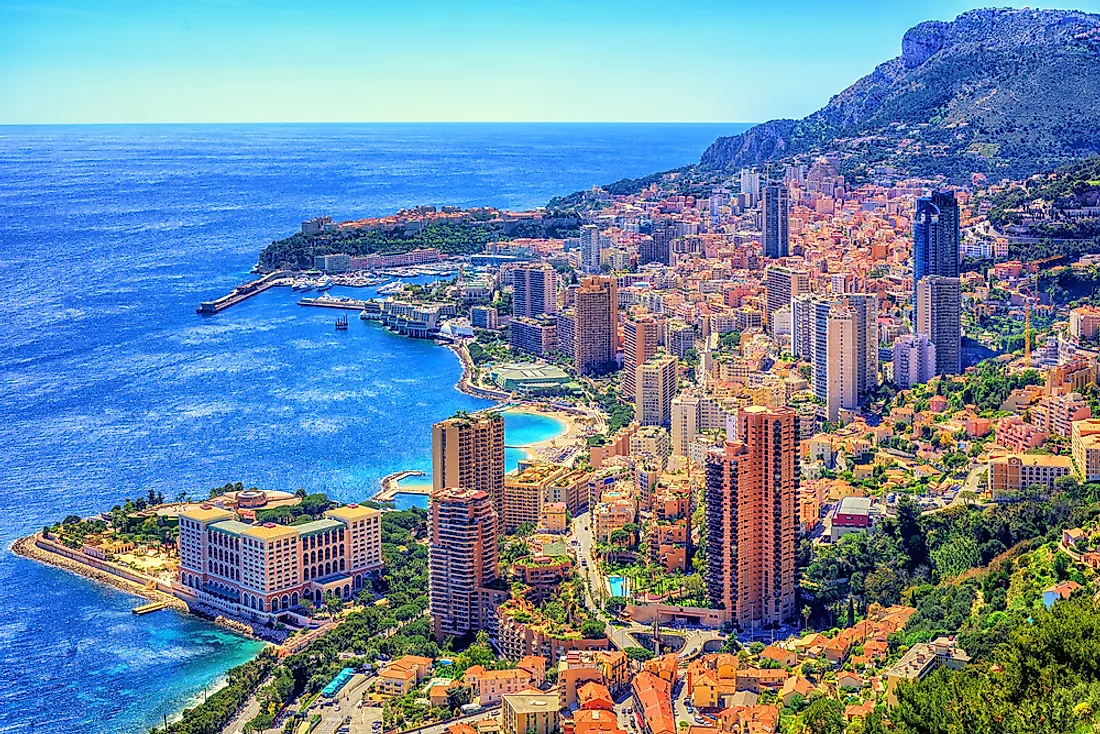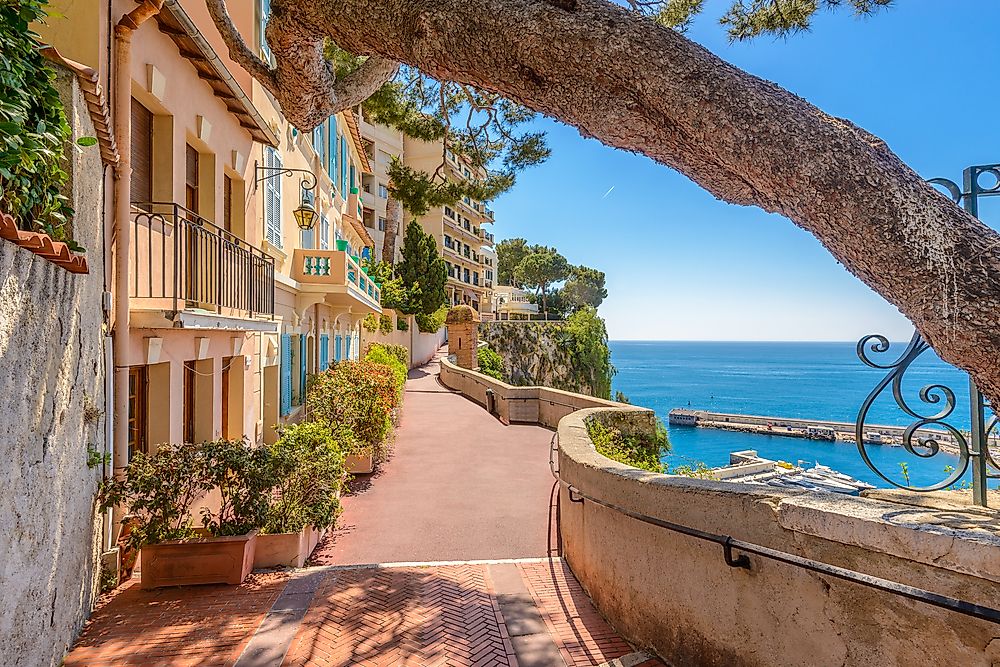What language is spoken in Monaco? Embark on a captivating exploration of the principality’s linguistic landscape, where French reigns supreme amidst a tapestry of diverse tongues.
Monaco’s official language, French, holds a prominent place in the principality’s cultural and social fabric, but it is not the only language that echoes through its streets.
Official Language

The official language of Monaco is French. It is the language used in government, business, and education, and is spoken by the majority of the population.
French has been the official language of Monaco since the 13th century, when the Grimaldi family, who still rule Monaco today, first took control of the city-state. French was also the language of the court of the Prince of Monaco, and it has remained the official language ever since.
Legal Status
The official status of French in Monaco is закреплено в Конституции страны, которая гласит, что “официальным языком Монако является французский”.
Linguistic Diversity

Monaco’s official language is French, but the country exhibits a rich linguistic diversity due to its geographical location and historical influences.The presence of other languages in Monaco can be attributed to factors such as immigration and tourism. Monaco is a popular tourist destination, attracting visitors from around the world, and this influx of tourists has contributed to the presence of various languages being spoken in the country.
Additionally, Monaco’s proximity to Italy and France has led to the influence of Italian and Occitan, a regional language spoken in southeastern France, in the country.
Immigrant Languages
Monaco is home to a significant immigrant population, with residents originating from over 140 countries. This diversity is reflected in the languages spoken in the country, with common immigrant languages including English, Italian, Spanish, Portuguese, and Arabic. The presence of these languages is particularly evident in Monaco’s business and commercial sectors, where international communication is essential.
Tourist Languages, What language is spoken in monaco
Monaco’s status as a tourist destination has also contributed to the linguistic diversity of the country. Visitors from around the world bring their native languages with them, and this has resulted in a multilingual environment in Monaco’s tourist areas. English is widely spoken in the tourism industry, as it is the most common international language.
Additionally, languages such as Italian, German, Russian, and Chinese are also frequently heard due to the high number of tourists from these countries.
French Influence

French has had a profound impact on the language spoken in Monaco, known as Monégasque. This influence is evident in various aspects of the language, including vocabulary, grammar, and pronunciation.
The historical and cultural ties between Monaco and France have contributed to this influence. Monaco has been under French protection since the 13th century, and French has been the official language of the principality since 1861. As a result, French has become deeply embedded in Monégasque society and culture.
Vocabulary
French has contributed a significant number of words to Monégasque. Many of these words are related to government, education, and culture, reflecting the influence of French institutions and ideas in Monaco.
Grammar
French has also influenced the grammar of Monégasque. For example, Monégasque has adopted the French system of definite and indefinite articles, as well as the use of prepositions and conjunctions.
Pronunciation
French has also influenced the pronunciation of Monégasque. Many Monégasque words are pronounced with a French accent, and some sounds have been borrowed from French.
Monégasque Dialect
Monaco’s unique dialect, Monégasque, holds a special place in the principality’s cultural identity. Originating from the Ligurian language, spoken in the neighboring regions of Italy and France, Monégasque has evolved over centuries to become a distinct dialect with its own characteristics.
Monégasque shares similarities with other dialects spoken in the Occitan language family, yet it has developed its own unique vocabulary and pronunciation. Notably, Monégasque has retained several archaic features that have disappeared from other Occitan dialects, preserving a rich linguistic heritage.
Current Usage
Despite French being the official language of Monaco, Monégasque continues to be spoken by a significant portion of the population. It is particularly prevalent among older generations and in traditional cultural events. The dialect is taught in schools as part of efforts to preserve and promote Monégasque culture.
Monégasque plays a vital role in maintaining the distinct identity of Monaco. Its preservation and promotion contribute to the principality’s cultural diversity and linguistic heritage.
Language Education: What Language Is Spoken In Monaco
The education system in Monaco plays a vital role in promoting the official language, French. The curriculum is designed to ensure that students develop a strong foundation in French, both spoken and written. French is the primary language of instruction from kindergarten through higher education.
Language Policies and Curriculum
The government of Monaco has implemented several language policies to support the promotion of French. These policies include:
- Making French the official language of instruction in all public and private schools.
- Providing financial support for French language programs and initiatives.
- Requiring all students to take French language classes throughout their academic careers.
The French language curriculum in Monaco is comprehensive and rigorous. Students begin learning French in kindergarten and continue to study it through high school. The curriculum covers all aspects of the language, including grammar, vocabulary, reading, writing, and speaking.
In addition to the formal curriculum, there are also a number of extracurricular activities that promote the use of French. These activities include French clubs, language exchange programs, and cultural events.
Language in Daily Life
In Monaco, the French language plays a dominant role in everyday life, serving as the primary medium of communication in various spheres, including business, education, and social interactions.
The use of French in Monaco has a significant impact on communication, fostering a sense of unity and shared understanding among the residents. It facilitates seamless interactions in various settings, from formal business meetings to casual conversations.
Business and Commerce
French is the official language of Monaco’s business community. It is used in all official documents, contracts, and negotiations. Proficiency in French is essential for effective business communication and establishing professional connections.
Social Interactions
French is the lingua franca of social interactions in Monaco. It is the primary language used in social gatherings, events, and everyday conversations among residents. The ability to speak French enables individuals to fully participate in the social fabric of the community.
Wrap-Up
Monaco’s linguistic tapestry is a vibrant reflection of its rich history and cosmopolitan nature, where the official language of French harmonizes with the unique Monégasque dialect and a multitude of other languages spoken by its diverse population.
Helpful Answers
Is French the only language spoken in Monaco?
No, while French is the official language, other languages such as Monégasque, Italian, and English are also spoken.
What is the origin of the Monégasque dialect?
Monégasque is a Ligurian dialect that originated in the neighboring Italian region of Liguria and has been spoken in Monaco for centuries.
How is the Monégasque dialect used today?
Monégasque is primarily spoken by older generations and is used in certain traditional and cultural contexts.